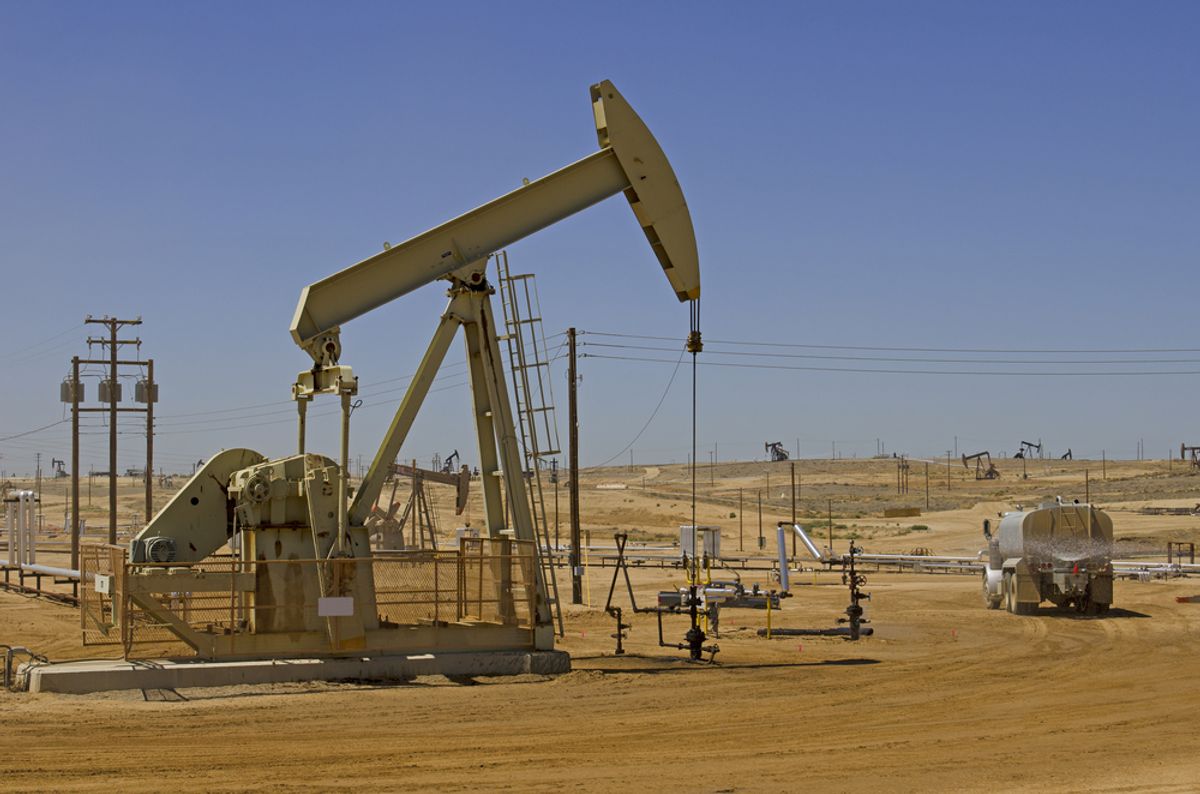How bad is the historic drought plaguing California?
So bad, reports Newsweek, that Central Valley farmers consider wastewater purchased from Chevron's oil drilling activities to be "a good deal."
Freshwater, which is typically preferred for use on food crops, is selling for up to 10 times its usual cost. That's where Chevron, which produces 10 barrels of wastewater for every one barrel of oil, steps in. The company, explains reporter Zoë Schlanger, is selling up to 500,000 barrels of that waste per day back to the Cawelo Water District in Kern County, “essentially ‘at cost,’” for farmers' use.
Unsurprisingly, this is raising some eyebrows. While oil products are removed, the wastewater isn't treated -- the biggest potential problem stems from its high salt content. In wetter times, the Water District will mix the wastewater with fresh; in the midst of severe drought, the farmers temporarily rely on saltier water, with the expectation that forthcoming rains will flush that salt out and keep it from damaging the soil.
But what if the rains don't come. That's the question on everyone's mind right now, and according to Schlanger, the consequences could be severe:
...over time, high sodium can change the properties of the soil, making it impermeable, unable to take in any more water. Trees would start to get “salt burn.” Their leaves would turn yellow, and yields would decline. Eventually, the soil becomes barren.
That threat alone is enough to stop some farmers from accepting Chevron's offering. Or, as one almond grower put it, “I would rather let my trees die." But there are other reasons to be, if not straight-up worried, then at least on the alert about what else might be present in the wastewater -- California, after all, doesn't have the most reassuring record when it comes to the disposal of wastewater:
California doesn’t have statewide regulations for recycling wastewater for agriculture. Instead, nine regional water boards issue permits to local water districts. Once a year, the Cawelo Water District is required to send data about the salt and boron content to the Central Valley Water Board, according to Clay Rodgers, the board’s assistant executive officer. But the district isn’t obligated to test for other components, like heavy metals, arsenic, radioactive materials and chemicals that might be used in the drilling process. Ansolabehere says Cawelo has tested for radioactive elements “a couple of times” over the past 20 years, since “it’s very expensive” to test for, and it isn’t required by the board. Those tests have not turned up any positive results.
Chevron maintains that it's very "environmentally conscious," and that testing last month revealed no heavy metals or chemical toxins above legal maximums. But the fact remains that its salty alternative to freshwater is a stopgap measure, and not a long-term solution -- and the best that can be said about it is that we have no evidence that it's doing harm. “There might not be a single risk out there with this practice," Seth Shonkoff, an environmental public health scientist and a visiting scholar at UC Berkeley, told Newsweek. "But the biggest risk that we have right now is that we just don’t know. So until we know, we definitely have reason for concern. We know that there are compounds being put down oil and gas wells that you would not want in your food.”



Shares